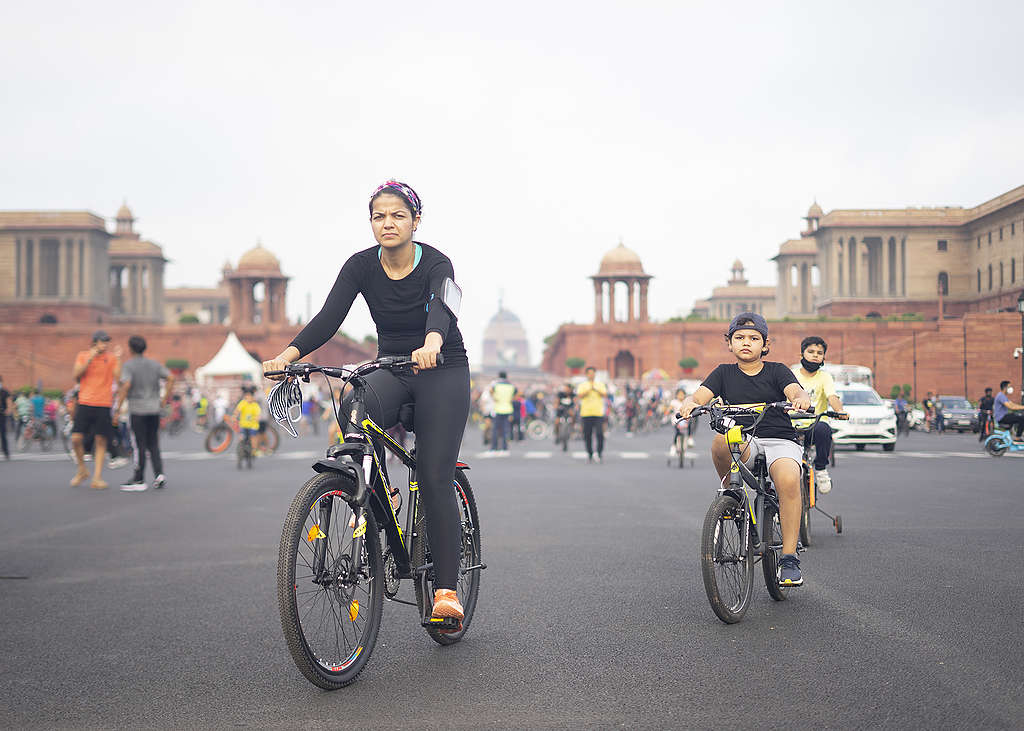Let us recap what happened in the last week. The world mourned the sad demise of Nelson Mandela, probably the biggest proponent of peace and human rights of our era. Much awaited results of the 2013 assembly elections were declared. And in between what got lost was the small but significant piece of news about Wilmar (the biggest palm oil trader in the world), saying no to deforestation in its recent policy announcement. There is nothing common among the three. But if we try reading into these, conclusions might be meaningful.
Mandela commanded respect across boundaries. There was not one country, race, religion or group that did not mourn for him. His demise infused in all, the values he stood for.
Coming to the second major news; Bhartiya Janta Party swept elections in three out of four states and became the single largest party in the fourth. Share markets cheered it. They touched record high in the hope that we are up for a stable government in 2014.
Still, it was the extraordinary debut of Aam Aadmi Party in the city state of Delhi that made real news. And it stood for change more than anything; change that can finally bring peace. Summing it up, there is a universal appeal, and rightly so, for certain issues and adding to it is the longing for change for a stable future. How about climate change? Reports say it is global in its causes and impacts. Can it have the same universal appeal then? It is also known that certain corporate practices do cause harm to the environment. Are we seeking change in them for a stable future of the planet?
Let’s discuss the third piece of news now. In a welcome move, Wilmar announced its policy and committed to zero deforestation. What importance may that have for us? Wilmar is the largest trader of palm oil and accounts for more than a third of the total global trade of palm oil. We may not realise it but the palm oil that it produces finds its way to our day to day lives through various consumer and processed food products and as cooking oil. Therefore, the policy means that if Wilmar sticks to its promise, it will change our lives in a big way.
Palm oil has unfortunately been the reason for destruction of rainforests in Indonesia and thus killing of wonderful animals such as orangutans and Sumatran tigers pushing them to the verge of extinction. It also means that Indonesia tops the chart of countries with the highest rate of deforestation related to greenhouse gas (GHG) emissions.
But this did not make news. Not in India where it mattered the most. India is the largest importer of palm oil. Our companies have been importing palm oil without being bothered to know about its links with deforestation. We have been using products without knowing that they might be the reason for killing of tigers and orangutans. Probably because the issue belongs to some other country that most of us are not bothered about it. Probably it is because we still see the forests as ‘their forests’ and the animals as ‘their animals’. Perhaps, we are not bothered because we do not see its implications in our neighbourhood, at least in the near future.
However, the scientists beg to differ for quite some time now. It has been proven and acknowledged that climate change is a threat for mankind. For mankind not for a nation! Reports have repetitively warned us that we are running out of time in taking action to check it. Moreover, the Intergovernmental Panel on Climate Change (IPCC) report that came out in September 2013 established that climate change is manmade.
And the little bit of palm oil in our lives is certainly not a small issue. Indonesia lost more than 1.2 million hectare of forest cover between 2009 and 2011. Palm oil sector was the single largest driver for this. Even this summer, huge forest fires, both accidental and deliberate, were reported. All this means that time is running out for Sumatran tigers and for us to take action. We in India have the responsibility and opportunity to save the forests in Indonesia and thus, precious animals.
We are the largest market in the world and we hold the power to move it. Let’s make sure that the palm oil we use directly or indirectly is not coming from deforestation. Let’s make sure that our companies know about the source of palm oil they are importing and inform us too. Let’s make sure that our favourite products not are killing Sumatran tigers and orangutans. Let’s demand deforestation-free palm oil.

Donate today or consider remembering Greenpeace in your Will.
